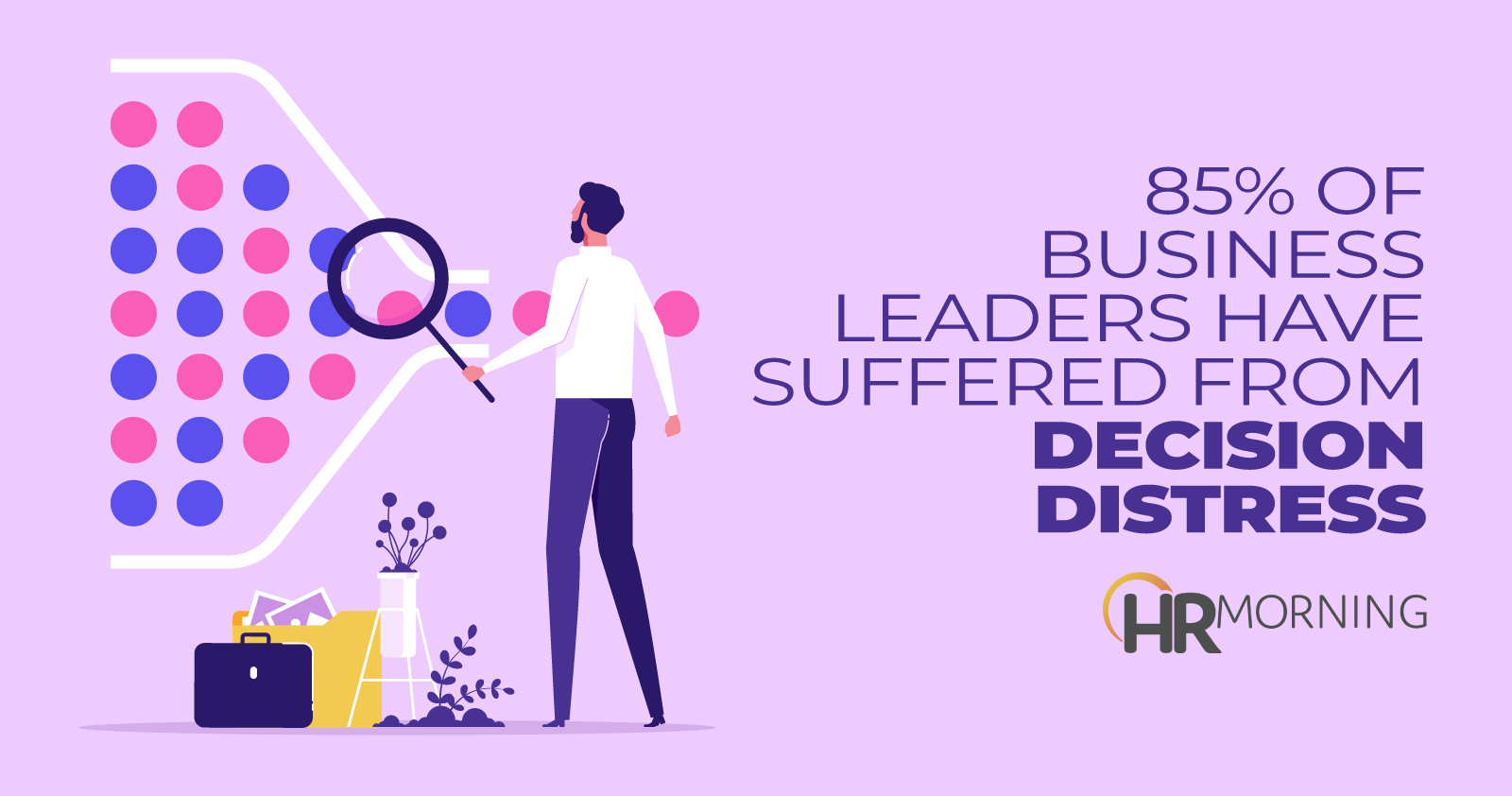In the past decade, there has been a significant uptick in the amount of data and information we have at our fingertips, and recent advancements in AI – such as ChatGPT – has brought it to the forefront. But can too much data be a bad thing?
Overwhelming amounts of data and access to information can lead to “decision distress” – regretting, feeling guilty about or questioning a decision made in the past year.
Decision distress can happen to anyone making a decision in their life. Still, the trend is especially pertinent for HR and those in leadership positions who must make big decisions for their company.
In fact, 85% of business leaders have experienced decision distress, according to Oracle’s new Decision Dilemma study. Here’s how decision distress can affect a business and what to do about it.
Business leaders facing decision distress
Too much data can hinder an organization’s success, the study finds, with nearly all (91%) reporting that the growing number of data sources has limited the success of their organizations.
Decision distress can not only cause leaders to question the decisions they’re making but also stops leaders from making decisions altogether. Seventy-two percent of business leaders said the overwhelming amount of data has stopped them from making decisions at all, Oracle’s study found.
Making organizational decisions affects the entire company, meaning that decision distress can cause challenges throughout it. Specifically, the study found that:
- The majority (78%) of business leaders believe organizations make decisions first, then find the data to back them up
- Nearly three-quarters (74%) of employees believe that organizations put high-ranking employees’ opinions above data when making decisions, and
- Almost a quarter (24%) of respondents feel that most decisions made in business are irrational.
Even though too much data can wreak havoc on an organization, business leaders still believe access to data and data intelligence can significantly impact an organization’s success. In fact, nearly all (97%) want help from data to make better decisions, reduce risk and plan for the unexpected.
How the right data can help HR and business leaders
Despite the challenges that too much data can create, an organization that can correctly harness data can use it to stay innovative and successful. In fact, 94% of study participants agreed that the right data can help HR make better decisions.
Oracle’s study found that the right volume and type of data can help HR to:
- Improve performance and efficiency across teams (40%)
- Optimize the workforce to meet business goals (36%)
- Prioritize training and development initiatives (34%)
- Retain and engage employees (33%)
- Explore what skills exist within the workforce (31%)
- Improve DE&I (30%)
- Decide who to hire (29%)
- Align headcount and budget requirements (28%), and
- Support internal mobility (26%).
Here are three ways to harness data to help your organization instead of harming it.
Choose the right data sources. Eighty-two percent of respondents agreed that having multiple data sources is beneficial to collecting a cohesive data set, but 91% say the growing number of sources is hindering the success of their organization and 32% are overwhelmed with the amount of data sources they have access to. These numbers highlight the fact that choosing the right type and amount of data can curb decision distress and improve decision-making.
Provide data training or hire data experts. Access to data is great – but what really matters is how you organize and look at the data to draw insights. Unfortunately, many business leaders don’t have the knowledge to analyze the data efficiently. Nearly three-quarters (72%) of respondents believe data is only truly helpful if IT pros can interpret and leverage the insights in meaningful ways, and 30% don’t believe they have the analytics background necessary to use their findings effectively.
Take advantage of analytics tools. The right analytics can help an organization with its decision-making, but ineffective data intelligence can clog up the process and lead to decision distress. Despite the fact that nearly all business leaders (93%) believe that having the right type of decision intelligence can make or break the success of an organization, 77% say the dashboards and charts they get are not directly related to the decisions they need to make.


